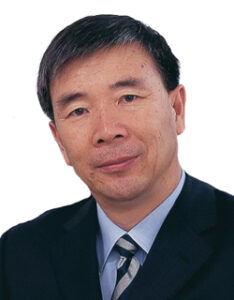On 2 September, the Legislative Affairs Office of the State Council published a draft amendment to the PRC Trademark Law and invited comment. The draft proposes major changes to the Trademark Law, including strengthening the right of priority, checks on registrations and oppositions made in bad faith, and increases in the administrative penalties for infringement.
Checks on bad faith registration

Executive partner
Run Ming Law Office
Article 31 of the current Trademark Law states that “an application for the registration of a trademark may not prejudice the existing right of priority of any third party, nor may improper means be used preemptively to register a third party’s trademark which is already in use and which has a certain degree of influence”. In the draft, the second proposal for article 34 adds “if the applicant, due to a contract, business dealings, geographical relationship or other relationship with such third party, is aware of the existence of the third party’s trademark, registration will be withheld”. This takes into account principles for determining bad faith that have developed in practice.
The draft also makes a breakthrough in the cross-class protection of trademarks with a certain degree of influence. Currently, the Trademark Law only offers this protection to trademarks that are considered “well known”. The second proposal for article 34 in the draft states that “if the trademark for which registration is applied copies a third party’s relatively distinctive trademark having a certain influence that is registered for non-identical or dissimilar goods, and would be likely to result in confusion, registration will be withheld”. This should help put a stop to such preemptive registrations in bad faith.
Enterprise trade names

Intellectual property adviser
Run Ming Law Office
Differences currently exist between the protection of trademarks and the protection of enterprise trade names. This can lead to conflict. Article 62 of the draft states that “where infringement is committed by using a third party’s well-known trademark as the trade name portion of an enterprise name, the trademark owner may institute legal action in a people’s court or may request the administration for industry and commerce to deal with the matter by ordering that use of the enterprise name be stopped or that procedures for registration of a change in enterprise name be carried out”. Compared to the current law, this provision increases both the means by which the holder of rightWang Yadong and Liu Hezhen,Run Ming Law Offices in a well-known trademark may seek relief in the event of a conflict, and the means of relief.
Opposition and relief
Applicants for trademark registration often encounter opposition from unconnected entities, resulting in delays and serious harm to their rights. Under article 36 of the draft, only a party with a priority right in the trademark or who is materially interested in it may raise an opposition.
There is also a major change in the relief procedures to be used after the hearing of an opposition. If the outcome of the opposition is the granting of registration, the registration certificate is issued directly and gazetted. An opponent that is dissatisfied with this outcome may apply to the Trademark Review and Adjudication Board (TRAB) for its cancellation. If the opposition results in the withholding of registration and the respondent is dissatisfied with this, it may apply to the TRAB for a review.
Stronger penalties
Article 56 of the current Trademark Law specifies that “if the actual losses suffered by the party whose rights were infringed, or the benefits the infringer gains from the infringement, are difficult to determine, the people’s court shall, depending on the circumstances, award damages”. Article 67 of the draft increases the ceiling for damages in such circumstances from RMB500,000 to RMB1 million. Article 64 also states that “if two or more infringements are committed within five years, heavier penalties shall be imposed”.
Impact on foreign applicants
Foreign clients that have registered or intend to register trademarks in the PRC should pay attention to the proposed amendments to the Trademark Law and revise their strategies accordingly.
It is likely that the proposed addition of sound marks in the draft will be adopted. Under current law, the “first-to-file” principle applies to the registration of trademarks. Failure to register promptly may result in preemptive registration by others. For example, when the Trademark Law was amended for the second time, adding three-dimensional trademarks, the Trademark Office received a large number of applications for these marks on the first day, but many applicants were not the bona fide holders of the rights in those trademarks.
Accordingly, foreign owners of sound marks should watch carefully for a change in the law, prepare documentation in advance and apply to register their marks at the earliest possible time.
The draft also reinstates and improves upon the examination opinion system that was established by the 1993 Trademark Law Implementing Rules, but which was abolished when the Trademark Law was amended in 2001. Abolition removed the opportunity for an applicant to state its opinions or submit evidence at the preliminary examination stage. For example, in the case of the trademark Americanstar, the applicant was unable at the examination stage to submit evidence that the trademark had already been registered in the US and that the US government was deemed to have consented to use of the country’s name in the trademark. The application was rejected. The applicant was only able to submit such evidence at the review stage, when it was granted registration. Once the examination opinion system is reinstated, foreign applicants will be able to use it to improve their success rate at the preliminaryexamination stage.
Finally, the time limit for trademark relief procedures may be increased. The current law allows only 15 days to apply for review of a trademark rejection or opposition – too short a time for foreign applicants to collect sufficient evidence for such a review. The proposed increase to 30 days will therefore be beneficial.
Wang Yadong is executive partner, and Helen Liu Hezhen, formerly head of the 7th department of the Trademark Office, is an intellectual property adviser at Run Ming Law Office
Suite 1804, NCI Tower
12A Jianguomenwai Avenue
Chaoyang District
Beijing 100022, China
Tel: +86 10 6569 3511
Fax: +86 10 6569 3512/13
E-mail:
wangyd@runminglaw.com
liuhz@runminglaw.com
www.runminglaw.com






















